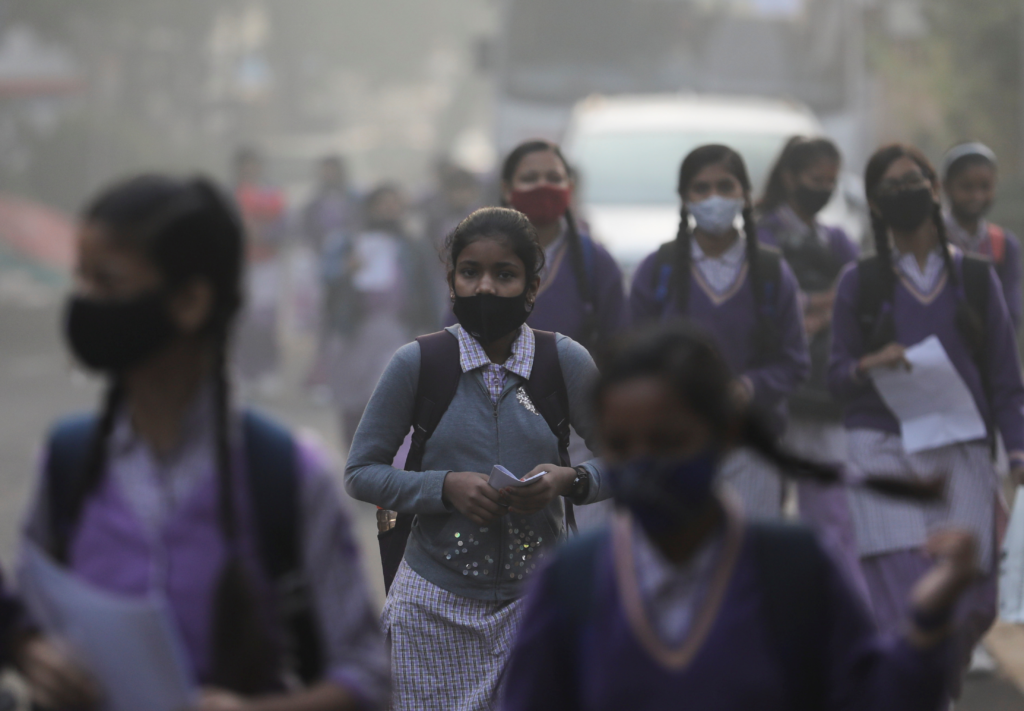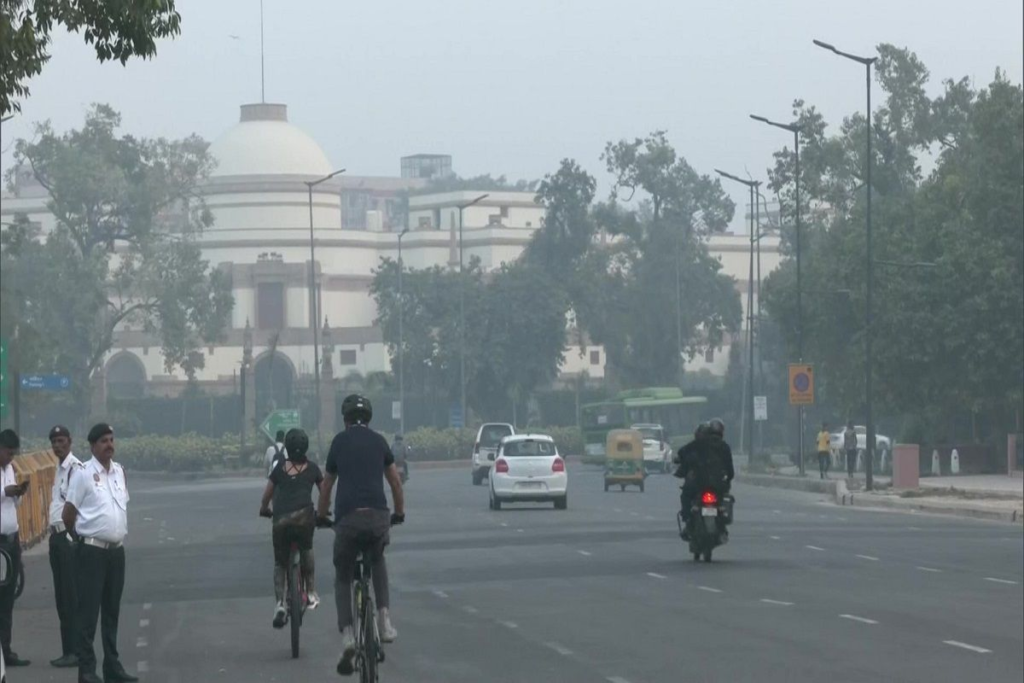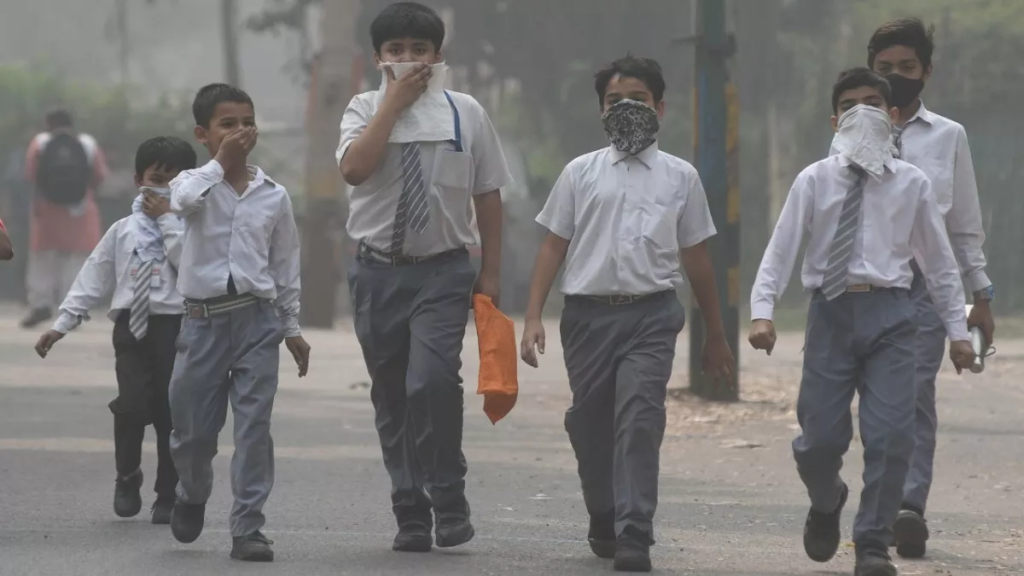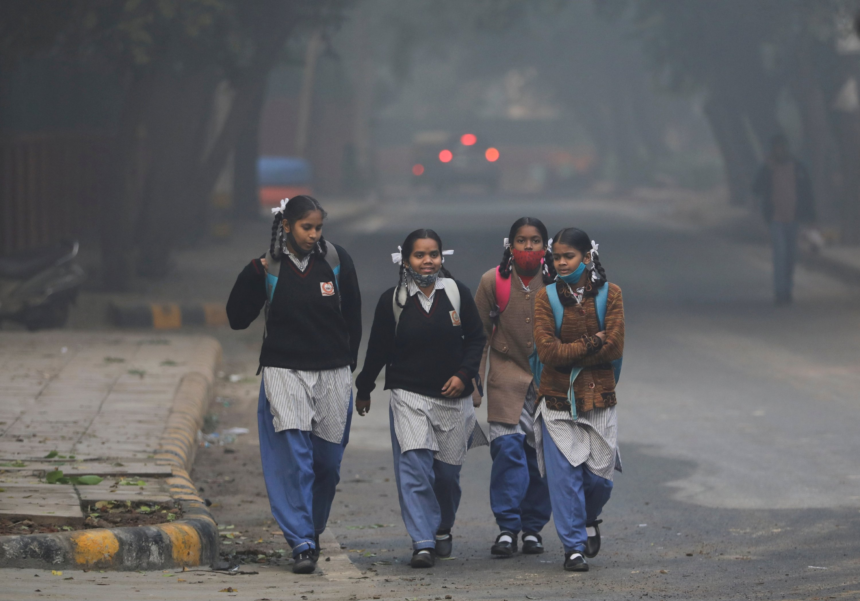Delhi Pollution : Temporary closure of primary schools in Delhi due to pollution. Schools offering online classes for grades 6-12 as an alternative.
Overview of Delhi pollution
The Delhi Ministry of Education’s Atishi declared this morning that all primary schools in the city would be closed through November 10. Because of the increasing pollution in the city and its surrounding areas, school closures have been announced.
The orders to remain closed apply only to primary schools at this time. Online instruction for grades 6 through 12 is now an option for all schools .The capital’s chief minister, Arvind Kejriwal, had declared that all public and private primary schools would be closed for two days prior to this extension of the closure period. November 10 has been added to the original announcement for November 3 and 4.Since the air quality index declined from 415 on Saturday at 4 pm to 460 by Sunday at 7 am, Delhi’s pollution levels have reached the severe plus category. According to an early warning system forecast on Saturday, the Air Quality Index is expected to stay “severe” through November 7.

Primary schools in Delhi will remain closed through November 10th due to the ongoing high levels of pollution. Schools are offering Grades 6–12 the option to switch to online instruction,” she wrote on ‘X’ (formerly known as Twitter).

ALSO READ : AIIMS Bathinda Recruitment 2023 : Accepting Applications For Staff Nurse Grade-I
The need for action for Delhi pollution
The air quality in Delhi typically deteriorates during the winter months, largely because of the phenomenon known as the ‘winter inversion.’ During this period, cold air traps pollutants close to the ground, resulting in a thick layer of smog that covers the city. This hazardous air poses significant health risks, especially for children, whose developing respiratory systems are more vulnerable to pollution.
Children, who spend a considerable portion of their day in schools, are exposed to outdoor air quality during this time. Prolonged exposure to polluted air can lead to various health issues, including respiratory problems, reduced lung function, and a greater risk of respiratory infections. To mitigate these risks, the government’s decision to temporarily close primary schools is a proactive step.

Impact on education due to Delhi pollution
While the decision to shut primary schools is a necessary step to protect children’s health, it does raise concerns about the continuity of education. However, it’s essential to remember that the government’s action is a short-term solution to a persistent problem. Several measures can be implemented to minimize the disruption to students’ learning:
- Online Classes: Many schools have adopted online education platforms in recent years, which can be leveraged during this period to ensure that students can continue their studies from the safety of their homes.
- Learning Resources: Schools can provide students with educational resources, study materials, and assignments that can be completed at home.
- Catch-Up Plans: Once schools reopen, teachers can implement strategies to help students catch up on the missed curriculum.

Community responsibility
The problem of air pollution in Delhi is not solely the government’s responsibility. The community as a whole can contribute to reducing pollution levels. Here are some steps that individuals and families can take to combat pollution:
- Reduce Vehicular Emissions: Carpool, use public transportation, or consider cycling and walking for short distances to reduce vehicular emissions.
- Limit Outdoor Activities: On days with poor air quality, it’s advisable to limit outdoor activities and exercise, especially for children.
- Plant Trees: Greenery helps improve air quality by absorbing pollutants. Planting trees and maintaining green spaces can make a significant difference.
- Promote Awareness: Educate friends, family, and neighbors about the importance of reducing pollution and the impact it has on health.

Conclusion
The decision to keep primary schools in Delhi closed until November 10 due to severe air pollution is a crucial step to protect the health of the city’s youngest residents. While it may disrupt the regular school routine, it is a necessary measure to ensure their well-being. It is also a reminder that addressing air pollution is a shared responsibility, and the community should come together to combat this ongoing problem. In the long term, efforts to reduce pollution must continue to create a healthier and more sustainable environment for all Delhiites.
ALSO READ : Parental Anxiety : A Silent Danger To The Success Of Your Kids




































